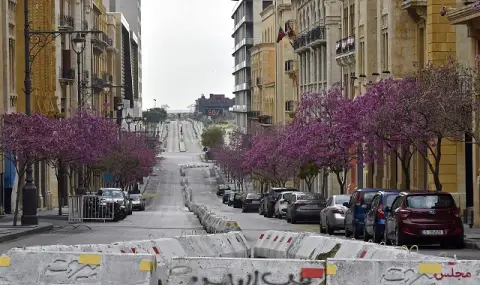The Lebanese parliament elected army commander Joseph Aoun as the country's president on Monday, Reuters and the Associated Press reported, quoted by bTA.
AP notes that the election of Aoun as head of state of Lebanon ends a vacuum that lasted more than two years - the presidential post has been vacant since October 2022.
The session of the Lebanese parliament was the 13th attempt by the legislature to choose a successor to former President Michel Aoun (no relation to the army commander - ed.), whose term expired then.
The vote came weeks after a fragile ceasefire agreement ended a 14-month conflict between Israel and the Iranian-backed Lebanese Shiite movement "Hezbollah", as Lebanon's leaders seek international aid for reconstruction.
In his first speech to parliament since his election, Aoun told lawmakers he would work to guarantee the Lebanese state's exclusive right to bear arms. His comments were seen in part as a reference to Hezbollah's arsenal, which he had not publicly discussed as the army's previous commander.
The general is widely seen as the preferred candidate by the United States and enjoys its support, as well as that of Saudi Arabia, whose help Lebanon will need to ensure that Israel withdraws its forces from southern Lebanon in accordance with the agreement and to finance the country's post-war reconstruction, the AP said.
Today's election of 60-year-old Joseph Aoun as president of Lebanon is the first step towards reviving government in the country, which has had no head of state or a fully-fledged cabinet since former President Michel Aoun left office, Reuters noted.
Lebanon, whose economy is still recovering from a devastating financial crash in 2019, needs international support to recover. after the war, which the World Bank estimates cost the country $8.5 billion.
Lebanon's system of governance requires the new president to convene consultations with lawmakers to nominate a Sunni Muslim as prime minister to form a government, a process that can often be drawn out by factional fights over ministerial posts.
Joseph Aoun has commanded the US-backed Lebanese army since 2017. Under his watch, the flow of US aid to the army, part of Washington's long-standing policy of supporting state institutions to limit the influence of "Hezbollah," has been maintained.
Aoun is from the Maronite Christian community. Under Lebanon's so-called confessional system of separation of powers, the presidency is held by a Maronite, the prime minister must be a Sunni Muslim and the speaker of parliament a Shiite.
